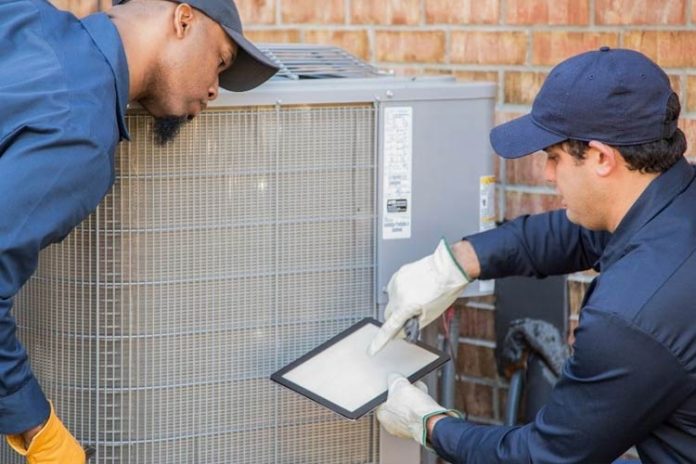Did you know, usually for a commercial or office space, HVAC systems account for as much as 30% of the overall energy costs? Even for a residential property, the heating and cooling expenses constitute a major portion of the utility bill.
While newer systems are designed with energy efficiency in focus, it’s unlikely that every home or office would have the budget to upgrade to one. But installing a brand new HVAC system isn’t the only option to regulate your energy demand.
Homes and businesses can significantly cut back their energy costs by optimising their existing HVAC systems. And here’s how you can do that.9 Budget-Friendly Ways to Improve Your HVAC’s Energy Efficiency-
1. Change or Clean Your Air Filter
Air filters trap dust and debris and prevent them from entering the room through an HVAC system. Over time, there is a dust build-up in the air filters, which slows down the system. Apart from this, it also impacts air quality.
Make sure you regularly clean or change air filters to ensure your systems aren’t working harder than they need to.
2. Upgrade Window Treatment
During the hot summer months, a lot of heat enters through the windows and puts a heavy load on the cooling systems. Replace delicate curtains with sturdy window treatments that will keep the sun out. Doble glazing and vinyl treatments are great options.
3. Keep Up With Regular Maintenance
Get your HVAC systems regularly serviced, instead of seeking maintenance when a major issue arises. Regular maintenance will ensure your system works efficiently and prolong its life. Ideally, you should get your system serviced at least twice a year, usually at the start of heating and cooling seasons.
4. Get a Programmable HVAC System
Do you keep your HVAC system at a constant temperature throughout the year? We’re sorry to inform you that this habit is costing you a lot of money in terms of unnecessarily high energy bills.
Start by turning the HVAC system one degree higher during the summer and one degree lower during the winter. If you can’t be bothered to adjust the HVAC every time you leave your home or office, it’s best to install a programmable HVAC that will automate the process.
5. Invest in Adequate Insulation
Are your energy bills high despite investing in an energy-efficient HVAC system? The reason could be a lack of proper insulation. Poor insulation leads to energy loss and increases energy demand.
Get a professional to insulate your home or office adequately. Particularly insulate doors, windows, crawl spaces and attics.
6. Clear out Vents & Ducts
Is there a piece of furniture placed right in front of your vent? Or are your vents full of debris? Either way, your HVAC system is working too hard to push out air. Remove any blockages to ensure uninterrupted airflow.
7. Turn-Off Heat-Producing Electronics
Certain electronics and appliances such as ovens and dryers generate heat, causing the HVAC system to work harder to cool the space. Avoid running these appliances during peak hours.
8. Repair Ductwork
If there is a leak in your ductwork, it will lead to inefficient cooling and heating. Hire a technician to check your ductwork and seal any gaps.
9. Partially Power with Alternative Source
Your energy bills could be high simply because your HVAC system is overworked. You can partially power your energy needs with alternative sources of energy. Consider installing solar panels to sustainably power HVAC system.
The Bottom Line
By reducing your energy demands, adjusting systems according to varying external factors and upkeeping timely servicing, you can enjoy the benefits of an energy-efficient HVAC system. To further bring down your energy bills, check out Origin Energy rates for competitively priced plans for homes and businesses.













